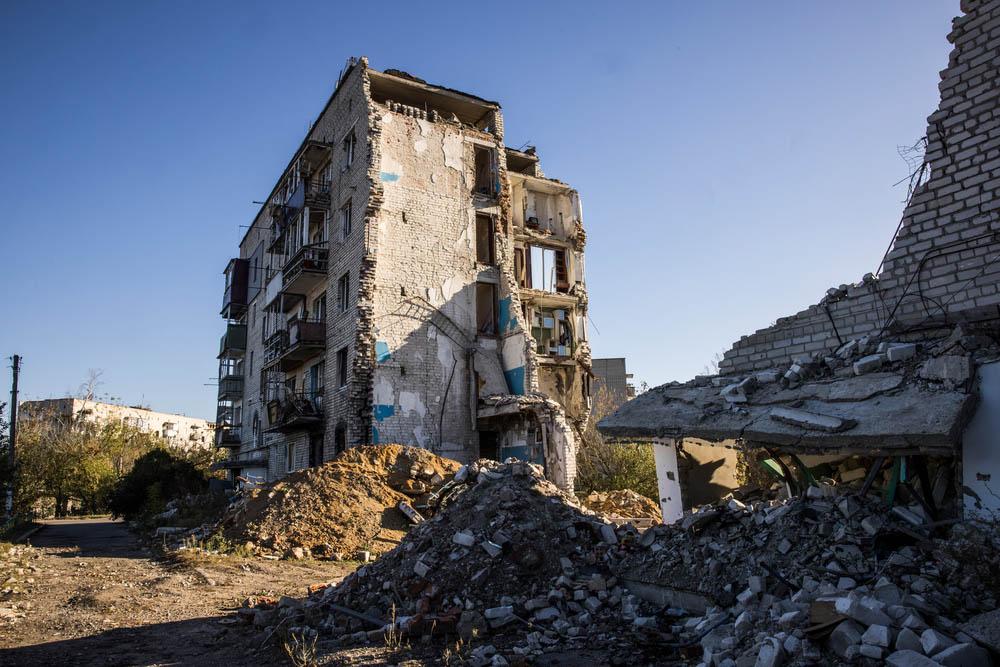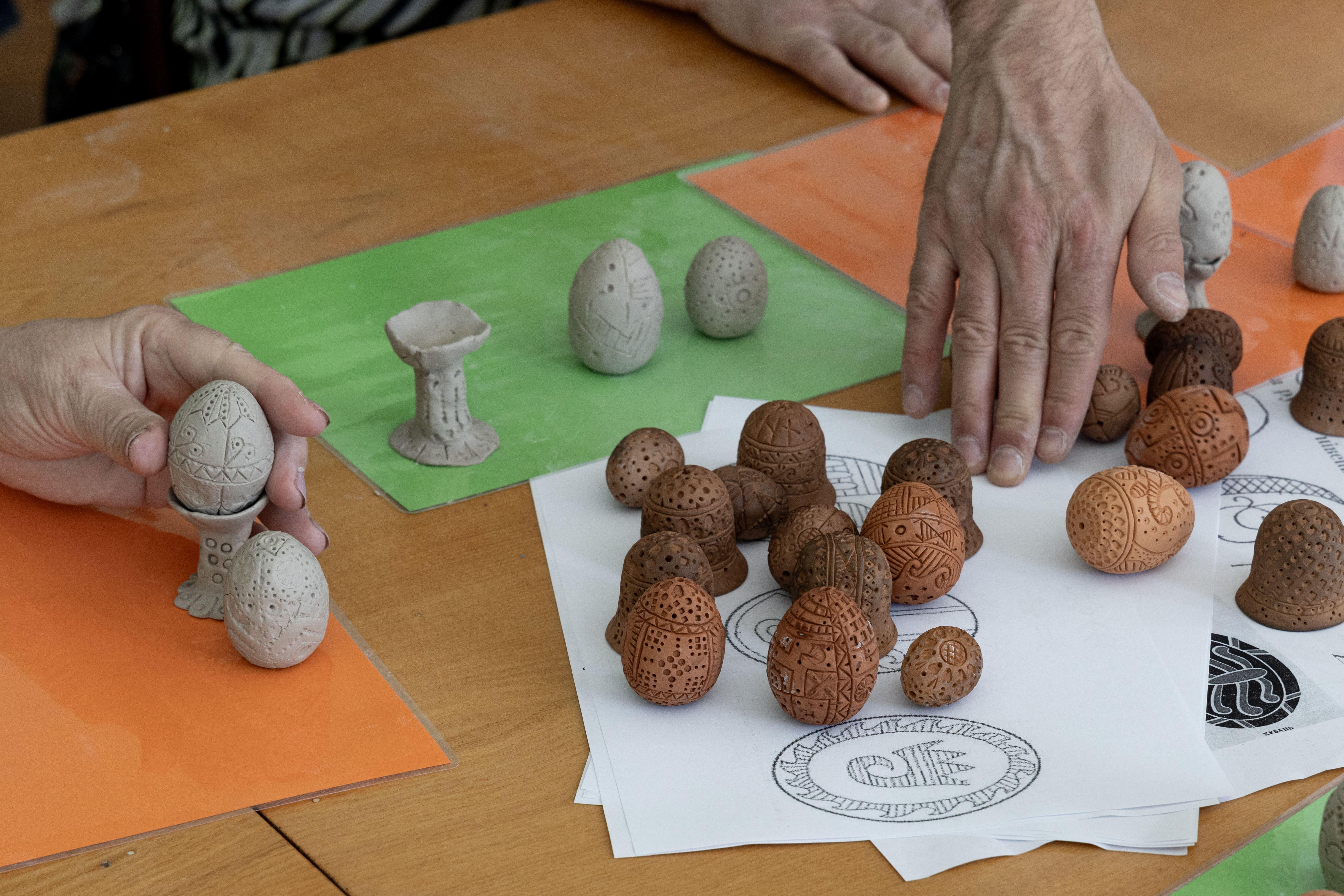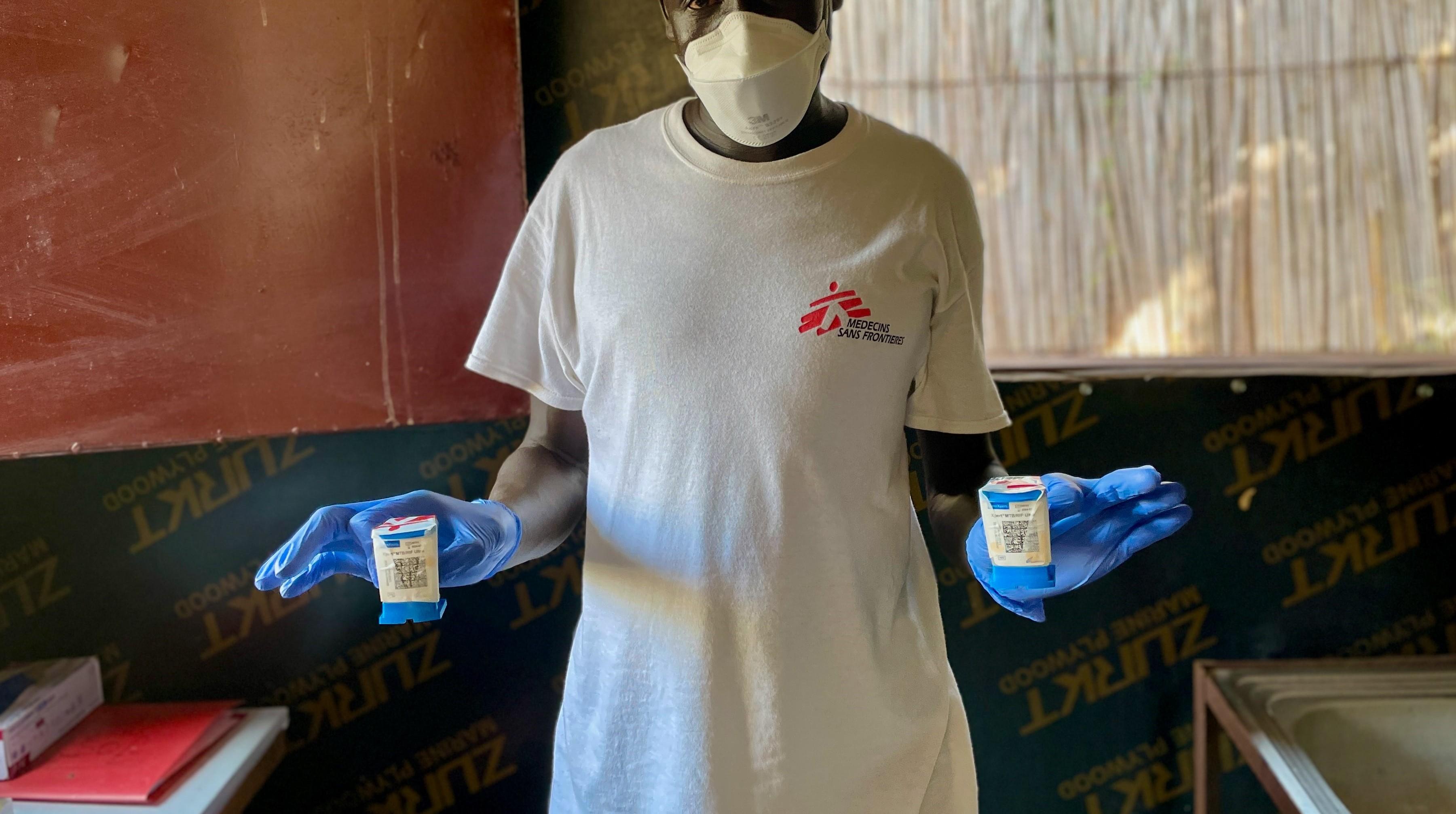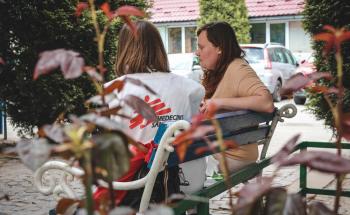“About six months ago, everything was shelled – the medical point, the pharmacy, and all the infrastructure destroyed… but it wasn’t the end,” says Liudmyla Karatsiuba. “We built houses, we strengthened our community.” Liudmyla is a resident near Kupiansk, one of the most volatile areas on the frontline in Ukraine, in the northeast of the country.
Following Ukrainian forces’ partial retaking of the Kharkiv region in September 2022 and the frontline shifting further from Kupiansk, a Doctors Without Borders (MSF) medical team arrived in Liudmyla's village to offer medical treatment. The shelling had left no public buildings for the team to set up a clinic, so Liudmyla agreed to let the team use her home, where they provided medical and psychological consultations to people from the entire community.
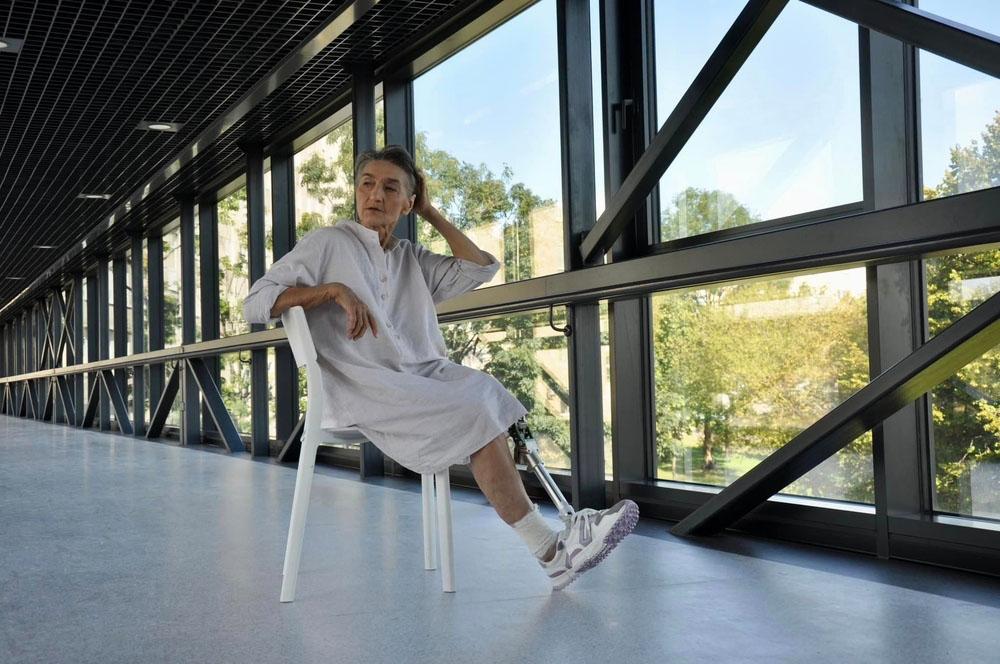
“I still follow the advice given by MSF psychologists, and I teach my neighbours the candle breathing exercise for calmness and balance,” says Liudmyla. “It has helped me remain focused on being useful at the age of 75. Currently, I am engaged in farming and raising rabbits.”
The breathing exercise Liudmyla refers to is a simple technique used to ease stress and anxiety. MSF mobile medical teams in Ukraine have shared breathing exercises that can be easily passed on to people as part of their work to treat and raise the profile of mental health care. The same teams worked with Liudmyla’s community to rebuild the only local medical point, where the Ministry of Health workers have now returned.
"Our mobile medical centre is now among citizens referred to as the “museum”, because it’s so new. Now there’s somewhere to go when we need treatment or medicine." says a smiling Liudmyla.
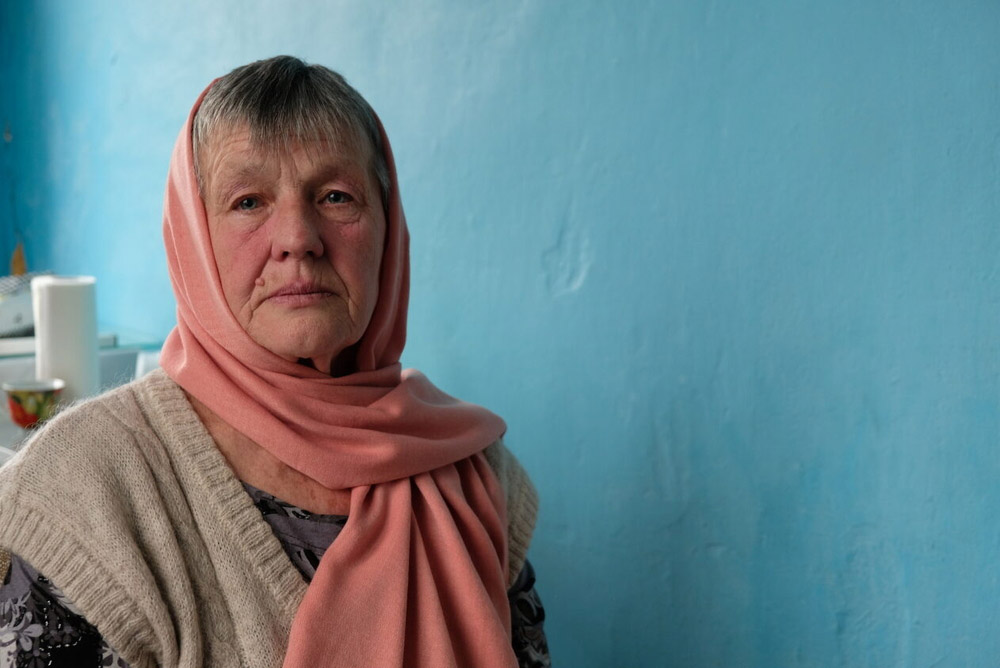
Liudmyla is typical of the types of patients MSF sees near the frontline. Since the dramatic escalation of the war in February 2022, MSF has been conducting mobile medical clinics in the adjacent regions. “Most of our patients have been women over the age of 60, many of them suffering from chronic diseases like hypertension and diabetes.” says Maksym Zharikov, MSF deputy medical coordinator in Ukraine.
“While some were evacuated, others either couldn’t leave, or chose to remain in their communities. The urgent need remains to provide medical services to patients residing 20-30 kilometres from the frontlines.” This trend has been a constant since the war began in 2014; villages near the frontline dwindle, with fewer supplies in the markets and medical centres and fewer people. However, following the war’s escalation, nearly 10 million people are displaced today, either inside Ukraine or as refugees abroad.
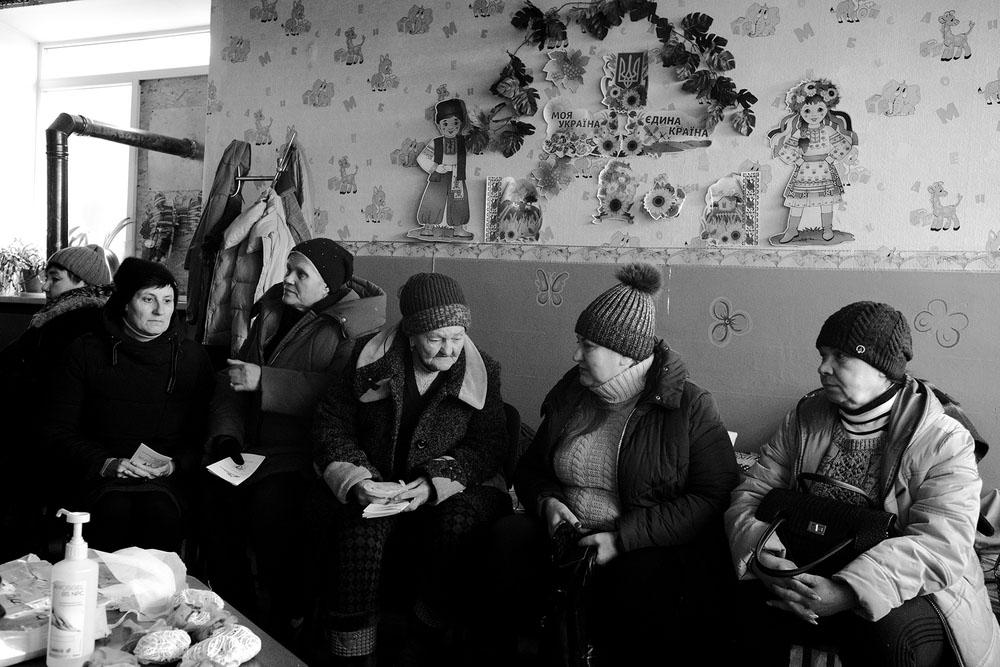
Organisations like MSF have been able to support some of these communities with supplies, medical care and reconstruction. However, more often, it is the communities themselves, with the aid of local volunteer organisations, who carry out this work. In the last two years, it has become increasingly difficult to reach areas cut off by fighting or close to the frontlines.
Today, MSF runs mobile medical clinics in 100 different towns and villages near the frontline in the Donetsk, Kharkiv, and Kherson regions. These clinics usually comprise a therapist, a psychologist, a medical doctor, and a social worker.
Psychological support during war time in Ukraine
“I can see that my younger son, Vania, needs more care and attention now,” says Olena Beda. “He often asks to be hugged and asks how much I love him.”
Olena, the mother of 9-year-old Vania, has been living in a shelter for displaced people in the Kirovohrad region for over a year with her two children after fleeing the war in the Donetsk region. Although they settled in an area relatively far from the frontlines, drones and missiles have become a relentless part of life in the last two years. Vania began to have trouble sleeping, particularly after shelling. After a team of MSF psychologists began conducting group play sessions for the children at the shelter, Olena felt that Vania’s anxiety was diminishing; he was able to go back to school and made new friends.
“However, sudden loud noises and conversations about the war can trigger a sudden change in his condition,” Olena explains.
In the last two years in Ukraine, Doctors Without Borders (MSF) has provided 26,324 individual psychological consultations. In shelters for internally displaced people, the main group of patients consists of mothers with children.
“At the onset of the escalation, we observed symptoms in children such as anxiety, panic attacks, and fear,” says Alisa Kushnirova, an MSF psychologist. “However, we now notice that children have begun to perceive the abnormal situation as normal - they have adapted to the sounds of explosions, though we still observe neurotic reactions.”
Our teams provide psychological support to families, including adults; the mental health of adults is key in maintaining a positive psychological environment within the family, as parents’ condition is often reflected in children.
